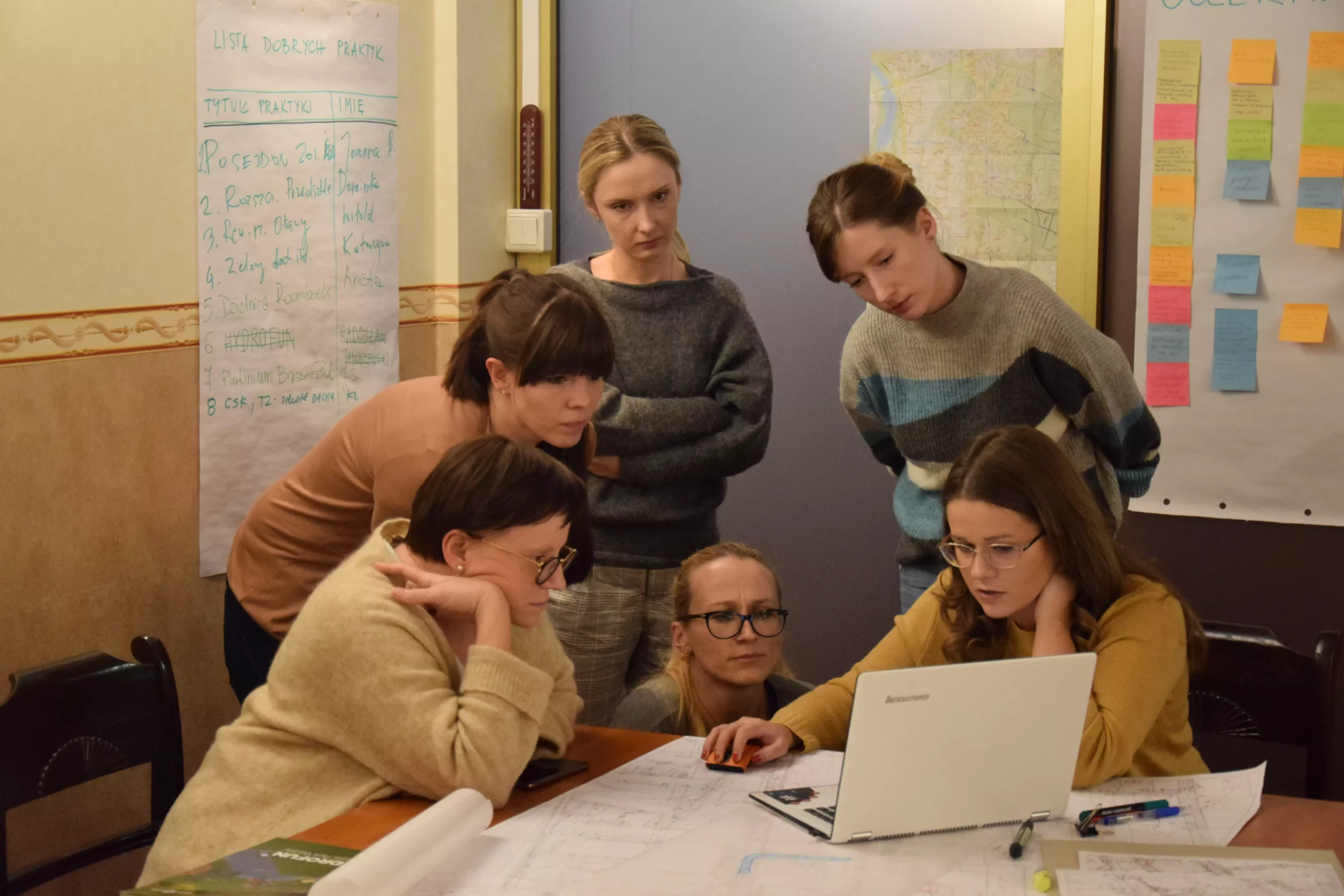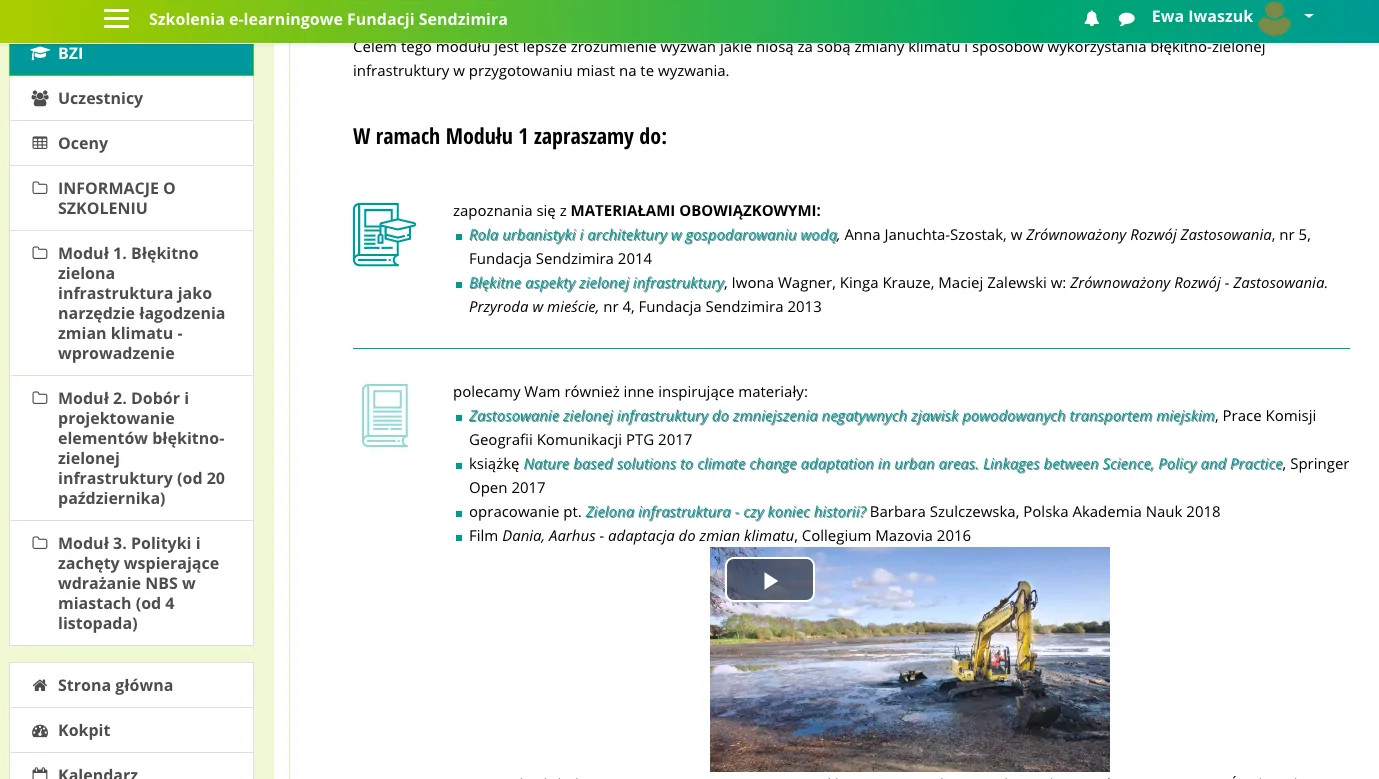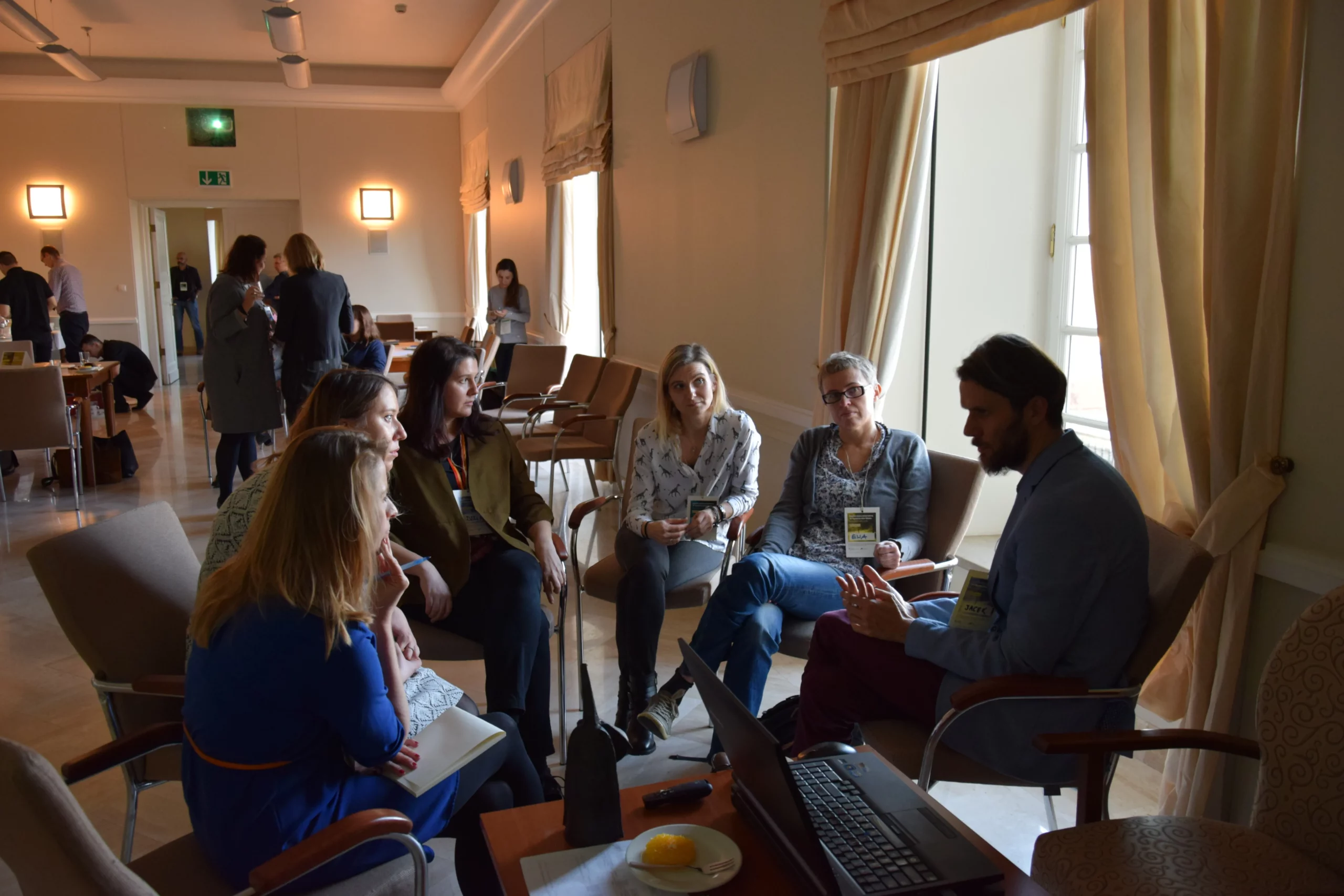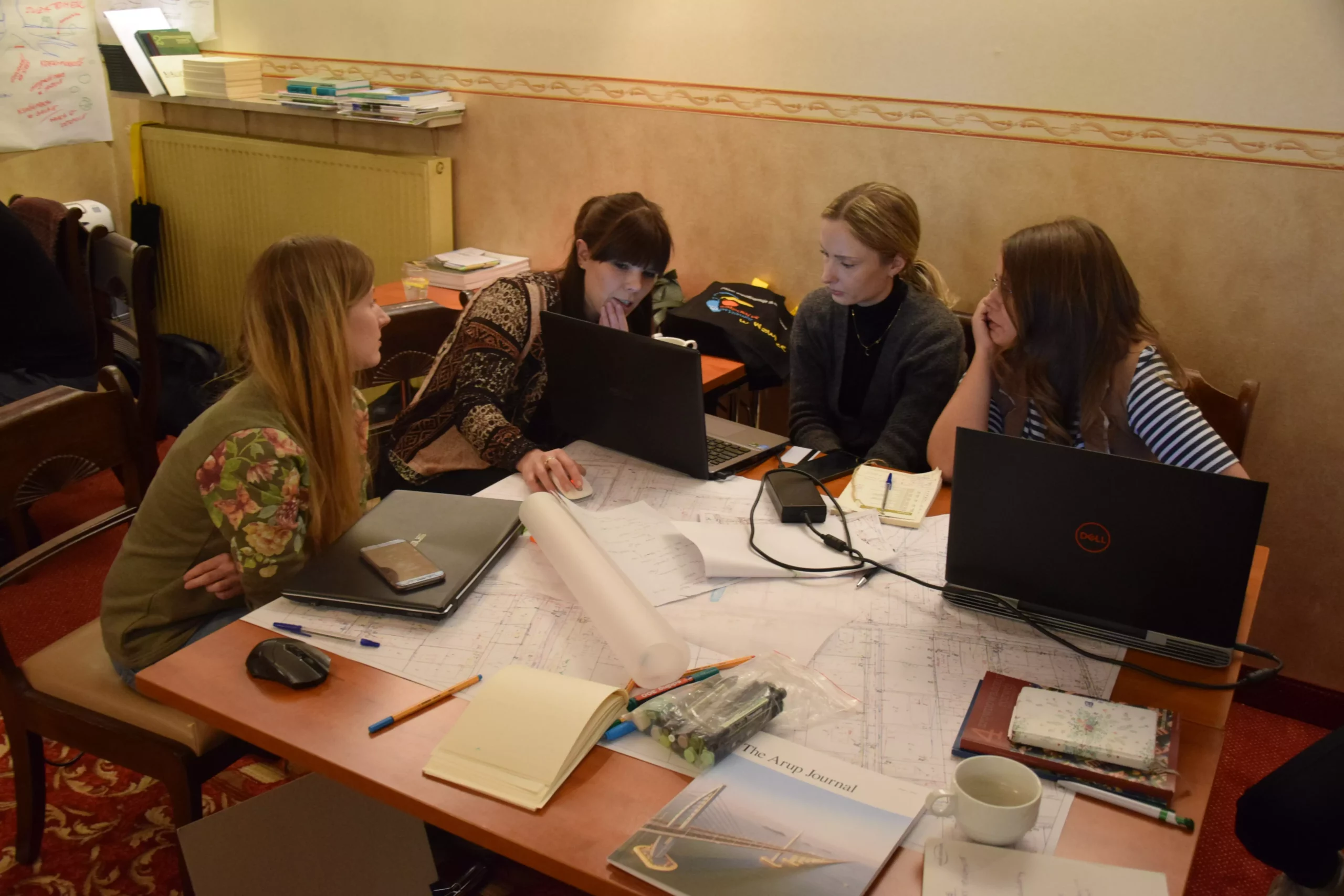Training with Nature-Based Solutions for Polish Muncipal Experts
As a part of Climate NBS Poland project, Sendzimir Foundation and Ecologic Institute organised a training programme for specialists involved in implementation of green and blue infrastructure and nature-based solutions in Poland. It comprised of a six weeks e-learning course as well as stationary, thematic workshops.

Online Training Courses
Over 300 specialists joined the e-learning course, and 110 of them completed the training succesfully. During the training activities the participants created high-quality outputs. The results of the courses, in Polish, will be presented as a list of good practices on the webpage www.uslugiekosystemow.pl.

Strategic Planning Tools Training
Stationary workshops were held together with Municipality of Warsaw and local authority of Warsaw-Wawer District.
The first, 2-days long workshop was dedicated to the strategical planning tools to address climate change in cities with nature-based solutions, and their implementation in Polish towns and cities. 24 participants also had a chance to learn about good practices and inspiring examples from Germany. Moreover, using a practical case study, the participants worked on their own ideas and tools that could be used in Warsaw in order to support NBS implementation. The results were presented and discussed with representatives of the Warsaw Municipality. The most interesting idea was a proposal of adaptation of the Biotope Area Factor from Berlin.

Nature-Based Solutions Design Workshop
The second training event was a 5-days long design workshop in Wawer district. Wawer is an extensively built-up, mostly single family residential area, but it has no storm sewers which triggers frequent problems with urban flooding. 15 participants designed innovative NBS’s in three landlocked and depressed areas of public spaces. Proposed solutions use the existing potential of the sites to solve the problems of stormwater overload while simultaneously creating opportunities for climate mitigation through carbon sequestration and cooling. Rainfall is managed in a whole drainage area using bioretention and infiltration systems, instead of being cumulated in one place. Design concepts were presented to the representatives of local authority and the district council.

